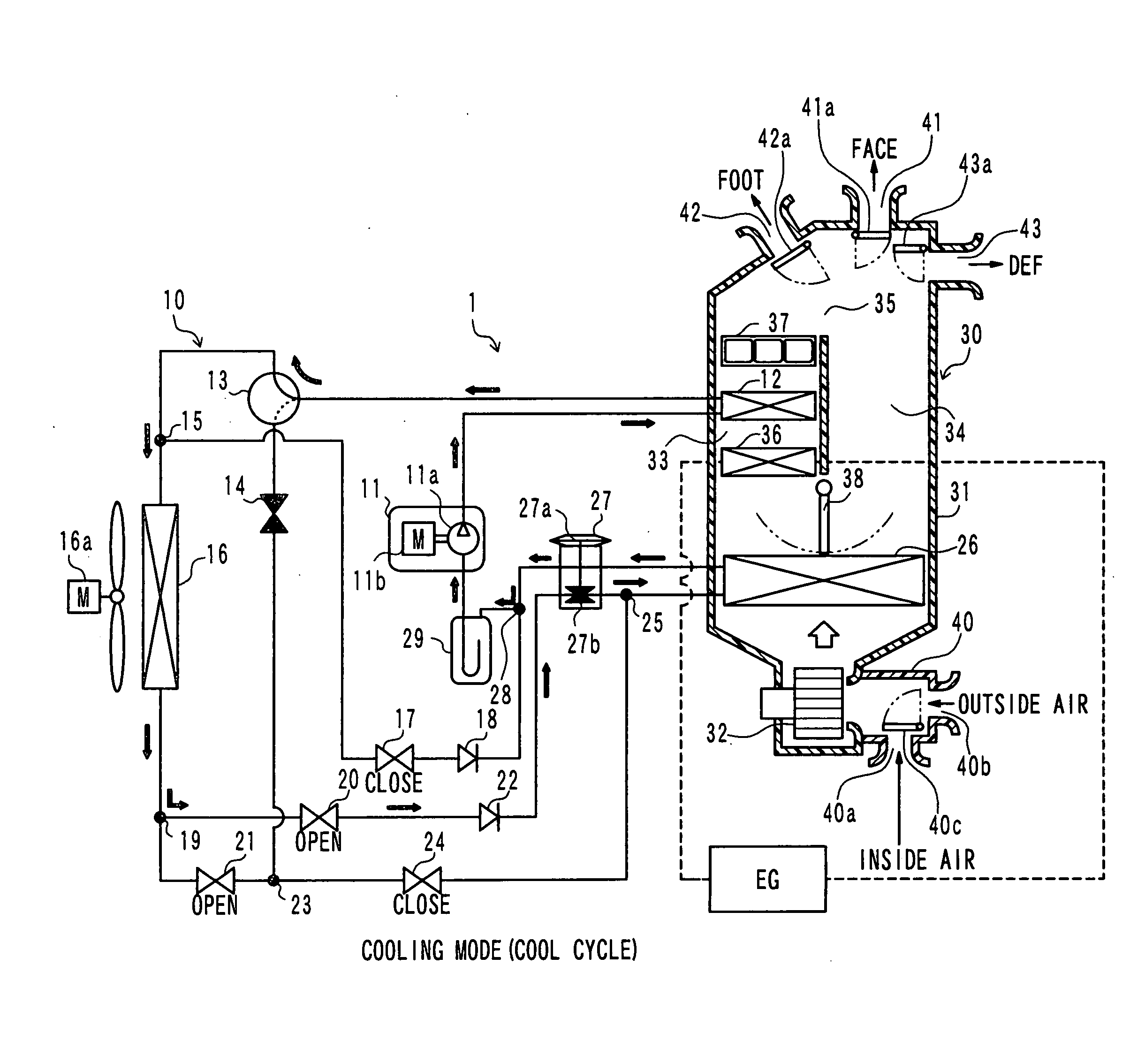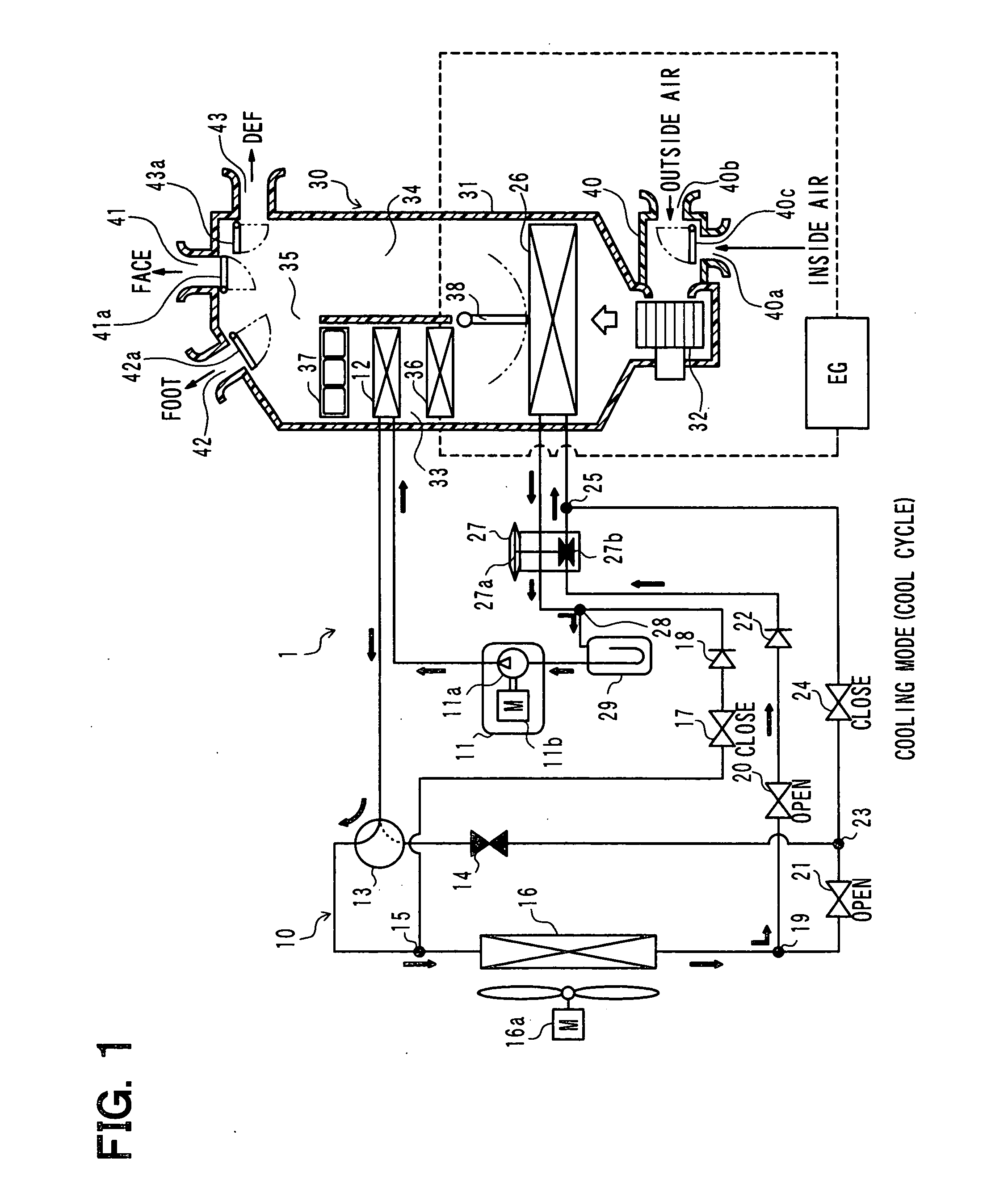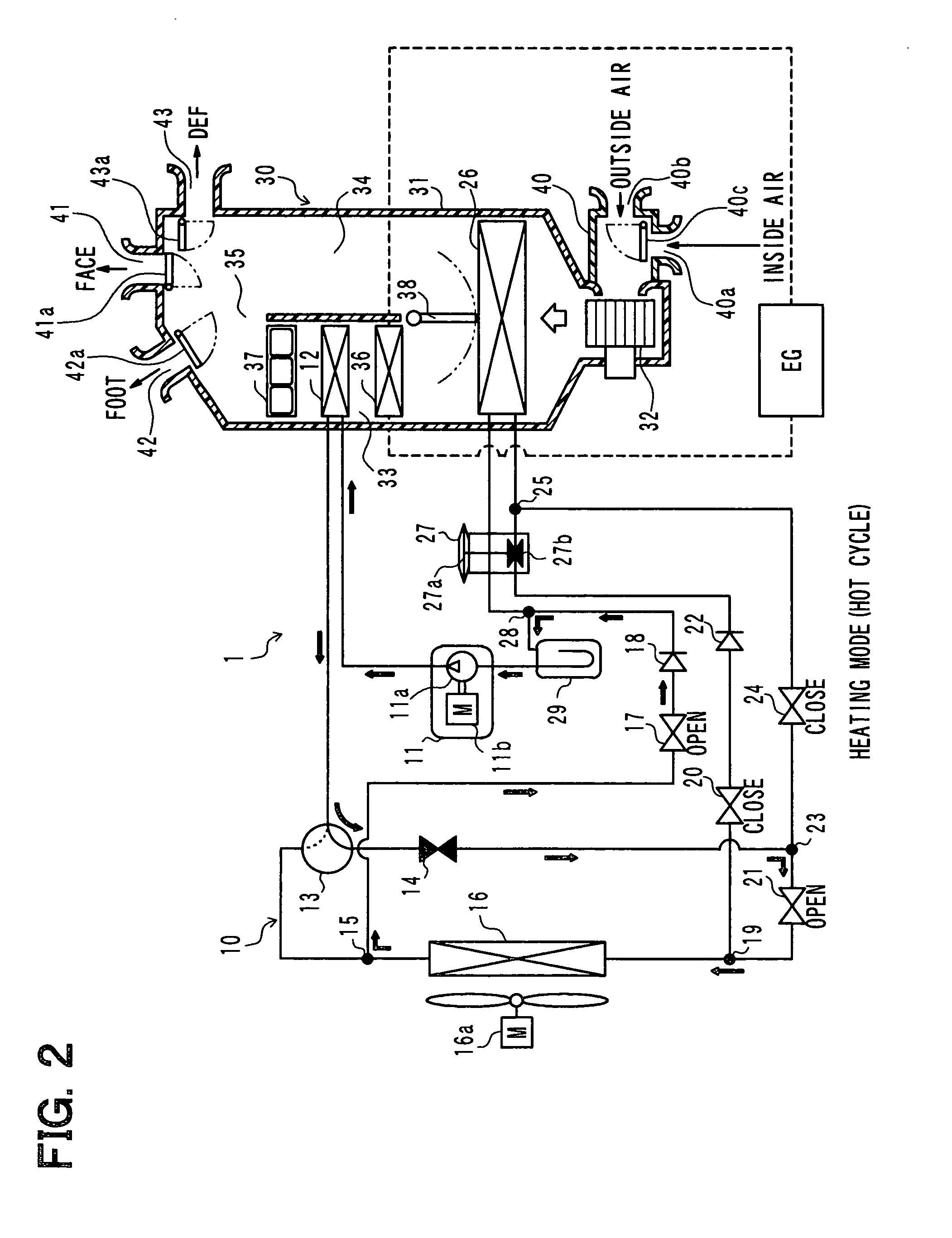Air conditioner for vehicle with heat pump cycle
- Summary
- Abstract
- Description
- Claims
- Application Information
AI Technical Summary
Benefits of technology
Problems solved by technology
Method used
Image
Examples
first embodiment
[0045]A first embodiment of the invention will be described below with reference to FIGS. 1 to 10. In the present embodiment, an air conditioner for a vehicle of the invention is applied to the so-called hybrid car which obtains a driving force for a vehicle traveling from an internal combustion engine (engine) EG and an electric motor for traveling. FIGS. 1 to 4 show an entire configuration diagram of an air conditioner 1 for a vehicle, according to the first embodiment and the following embodiments described later.
[0046]The air conditioner for a vehicle includes a vapor compression refrigeration cycle 10 which can switch among refrigerant circuits in a cooling mode (cooler cycle (i.e., COOL cycle)) for cooling the vehicle interior (i.e., vehicle compartment), in a heating mode (HOT cycle) for heating the vehicle interior, and in a first dehumidification mode (DRY_EVA cycle) and in a second dehumidification mode (DRY_ALL cycle) for dehumidifying the vehicle interior. FIGS. 1 to 4 i...
second embodiment
[0238]A second embodiment of the present invention will be described with reference to FIGS. 1-8 and 11.
[0239]In the present embodiment, the number of revolutions of the compressor 11 determined in step S11 of step S6 will be described.
[0240]FIG. 11 is a flow chart showing a part of step S11 of FIG. 6, for determining the target evaporator blown-air temperature TEO that is a target temperature of air flowing out of the indoor evaporator 26 in the cooler cycle (cooling mode).
[0241]The number of revolutions of the compressor 11 in the cooler cycle is determined using the control map stored in the air conditioning controller 50 based on the target evaporator blown-air temperature TEO, as described in step S11.
[0242]In the present embodiment, the target evaporator blown-air temperature TEO of the indoor evaporator 26 is determined based on the control process shown in FIG. 11.
[0243]In step S60, a temporal target outlet air temperature f(Tam) is determined based on the outside air temper...
third embodiment
[0253]A second embodiment of the present invention will be described with reference to FIGS. 1 to 8 and 12A-12B. In the present embodiment, the number of revolutions of the compressor 11 determined in step S11 of FIG. 6 will be described in detail.
[0254]FIG. 12A is a flowchart showing a part of step S11 of FIG. 6. Control processing of the flow chart of FIG. 12A is performed when the automatic switch 60b is turned on, for example.
[0255]In step S70, a change amount ΔfH in the number of revolutions of the compressor 11 is calculated with respect to a previous number of revolutions fHn−1 of the compressor 11 by using a basic determination way in the heat pump cycle (heating mode). FIG. 12B shows an example of a rule of the fuzzy theory for determining the amount of change in number of revolutions ΔfH of the compressor 11, based on a pressure deviation Pn and a change ratio PDOT.
[0256]Then, in step S71, the present temporary number of revolutions of the compressor 11 is determined. The ...
PUM
 Login to View More
Login to View More Abstract
Description
Claims
Application Information
 Login to View More
Login to View More - R&D
- Intellectual Property
- Life Sciences
- Materials
- Tech Scout
- Unparalleled Data Quality
- Higher Quality Content
- 60% Fewer Hallucinations
Browse by: Latest US Patents, China's latest patents, Technical Efficacy Thesaurus, Application Domain, Technology Topic, Popular Technical Reports.
© 2025 PatSnap. All rights reserved.Legal|Privacy policy|Modern Slavery Act Transparency Statement|Sitemap|About US| Contact US: help@patsnap.com



